Shot Long Melford peregrine falcon released back into wild
- Published
The falcon had six pieces of lead shot in a wing, foot and chest
A shot and wounded bird of prey has been released back into the wild after a year of rehabilitation work on a wing and foot.
The peregrine falcon was found in Long Melford, Suffolk and vets removed six pieces of lead shot from her.
She has been nursed back to flying condition at the Raptor Foundation near St Ives, Cambridgeshire.
Simon Dudhill, foundation manager, said: "This release was better than we could have imagined - she'll be fine."
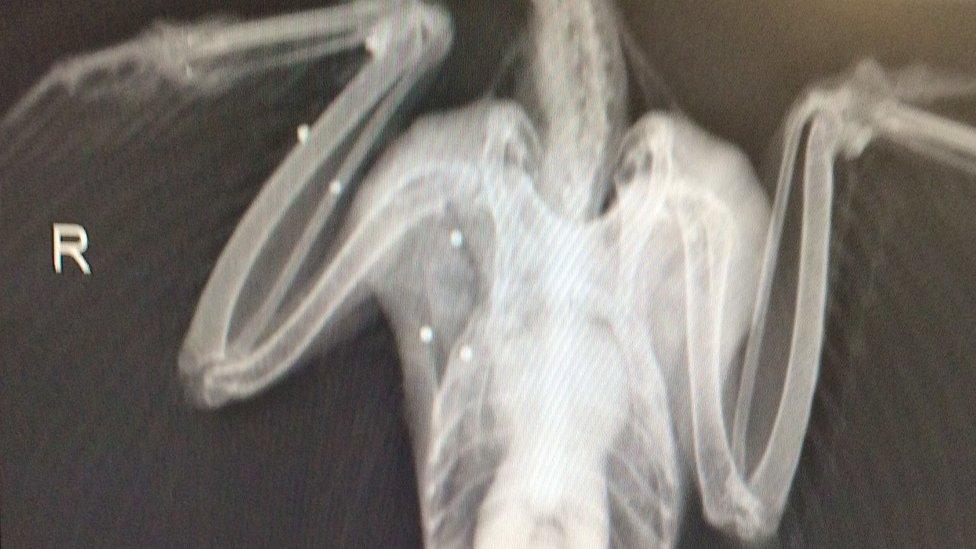
The vet's x-ray shows five of the six pieces of lead shot in the bird's wing and chest - the other one was under a talon
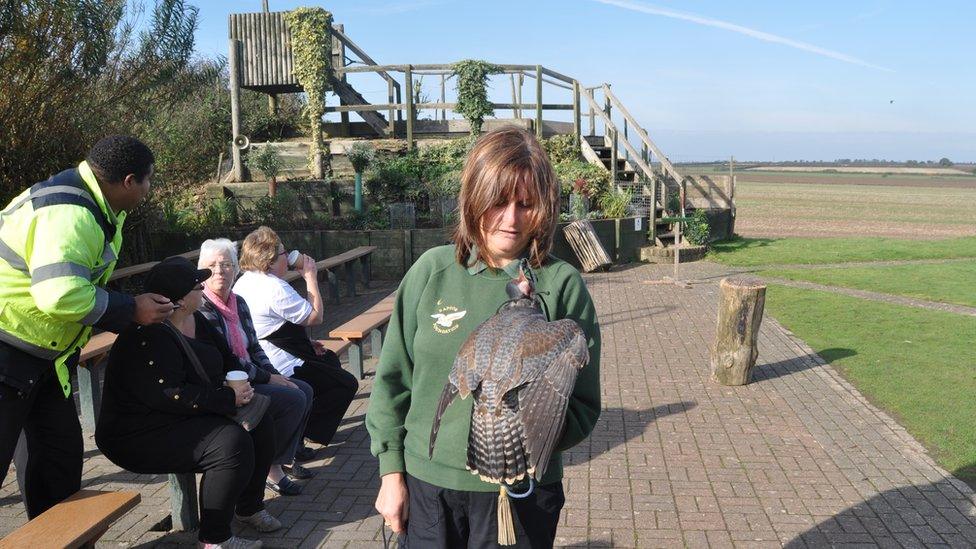
The peregrine falcon was hooded as she was taken up to the release platform at the Raptor Foundation near St Ives
The bird was found by a member of the public near a stream in August 2014 and the foundation said it had taken hundreds of hours of work to get her ready for her return to the wild.
"The biggest problem was the pellet that was in the toe - and at that stage we didn't know if that foot, which is needed to catch prey, would ever work again," said Mr Dudhill.
"We will do all we can to combat this evil, for want of a better word, of people shooting these birds."
Upon release, the bird flew above a neighbouring field and immediately chased a pigeon.
She failed to catch it, but the centre said she was later spotted carrying a dead one.

Peregrine falcon
top diving speed of 180mph (290km/h) - one of the world's fastest birds
1,500 breeding pairs in UK (latest figures from 2002)
hen lays 3-4 eggs a year
UK birds remain resident all year round, with others visiting from northern Europe

The RSPB is still offering a £1,000 reward for information leading to the identification of the person who shot the bird, while Suffolk Police said it was still an active investigation.
PC Mark Bryant, rural crime officer, said: "We can only assume a particular person has an issue with peregrines or maybe wanted one as a trophy bird."
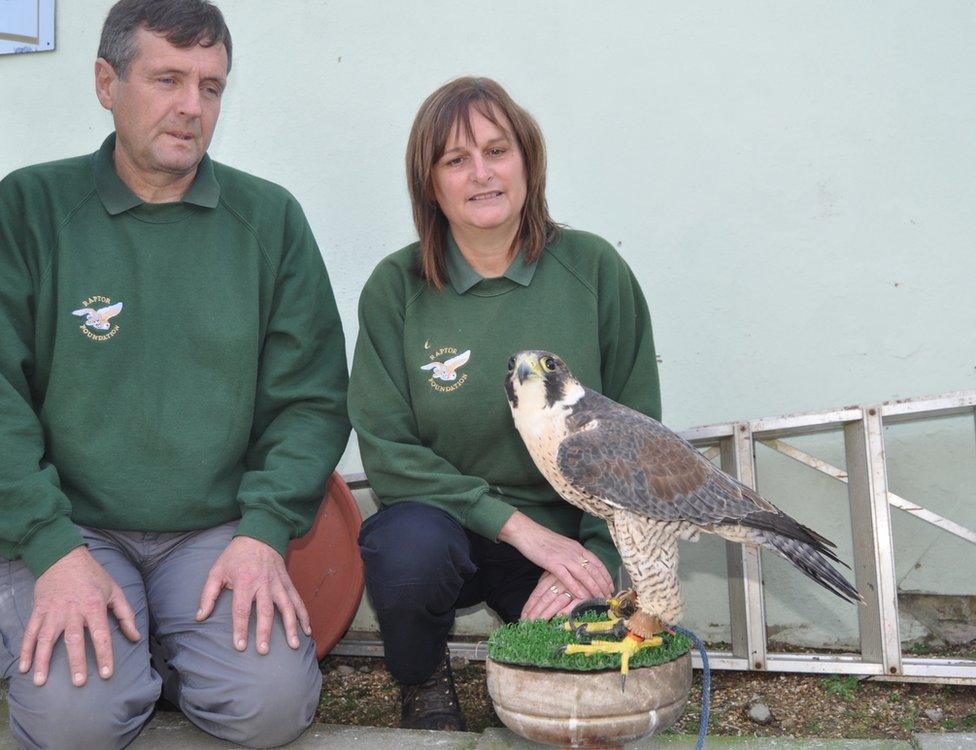
After a year of care, the release of the bird was an emotional moment for Simon Dudhill and Liz Blows
- Published28 March 2015
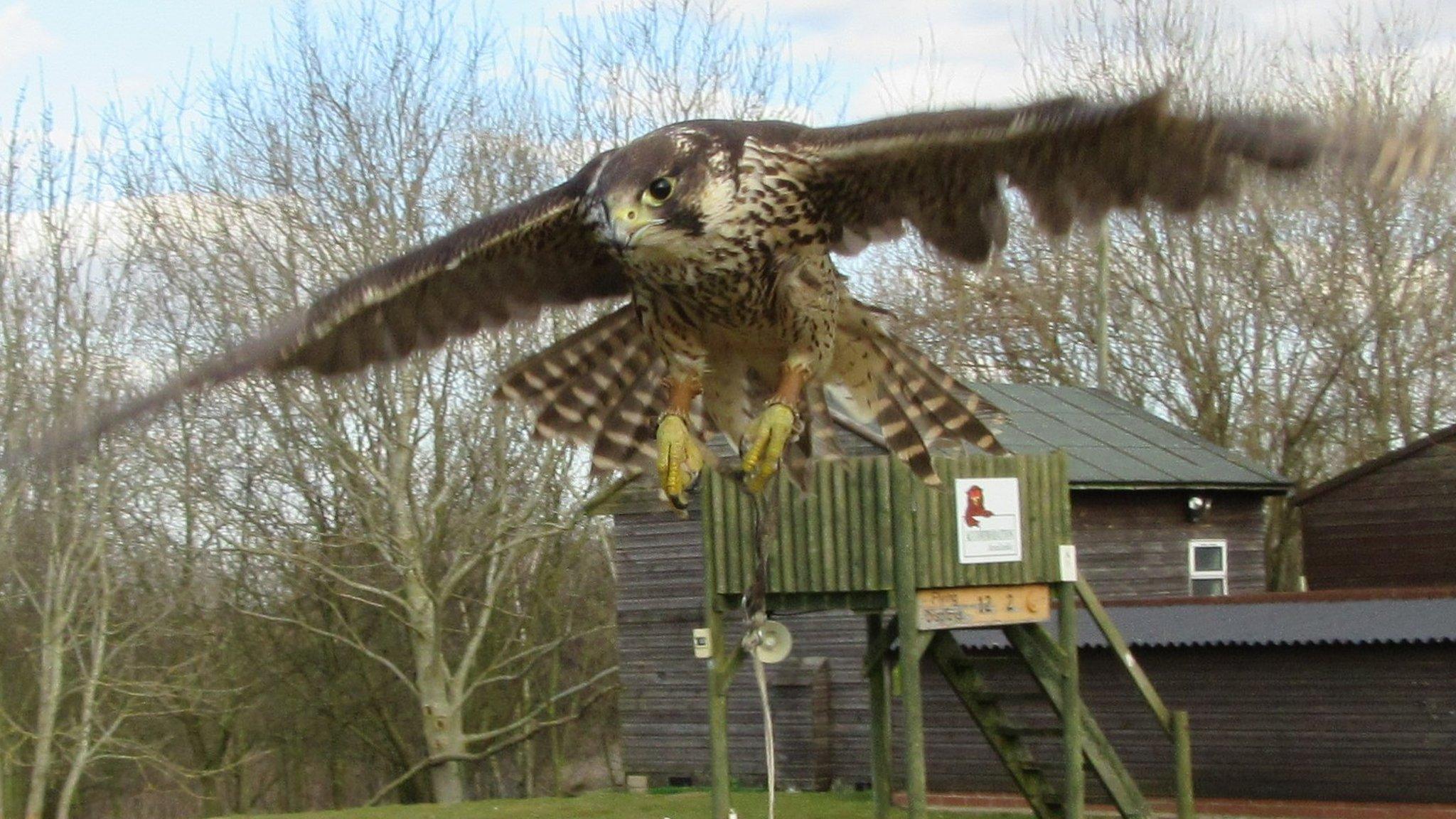
- Published25 October 2014
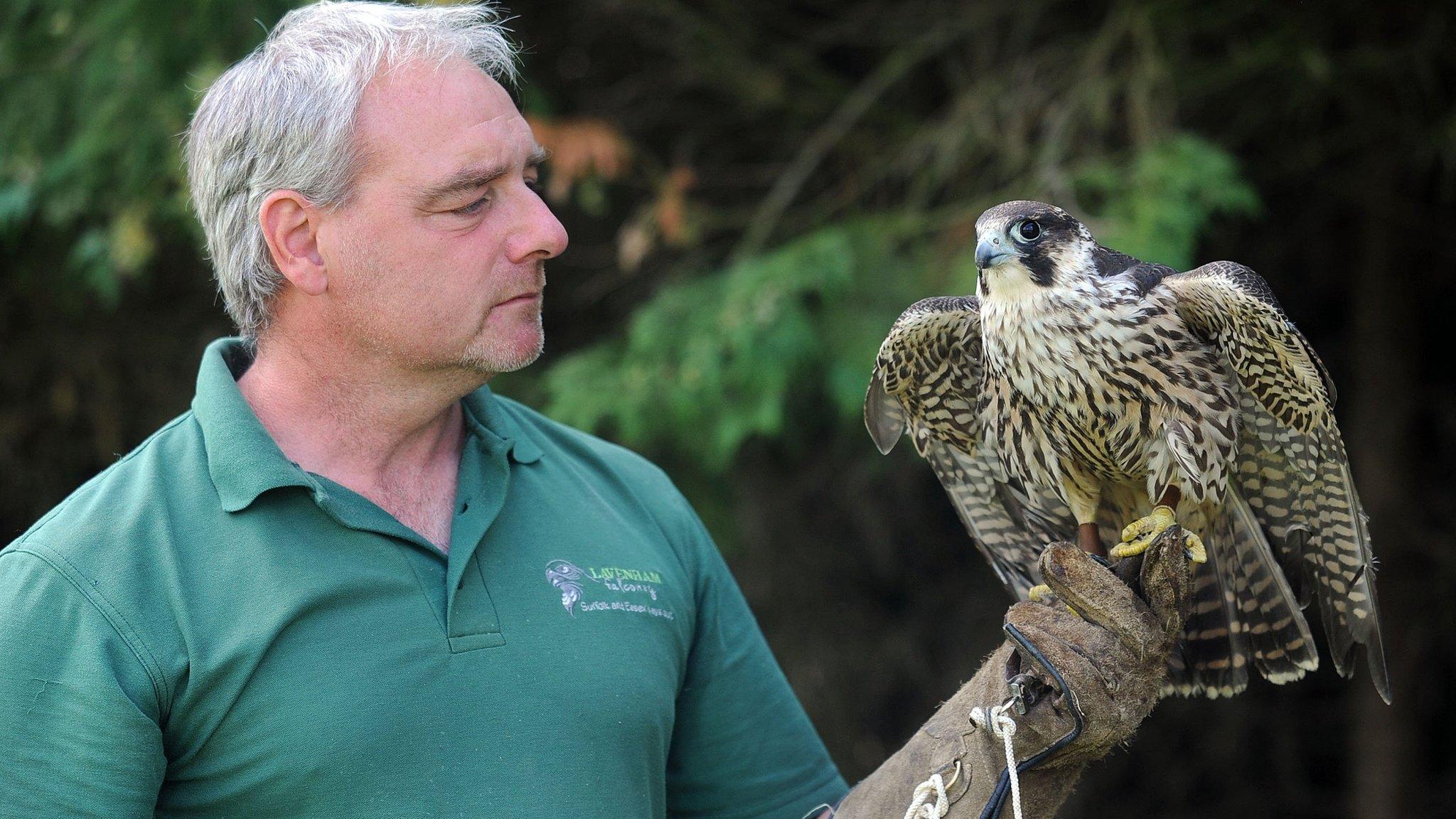
- Published9 September 2014
